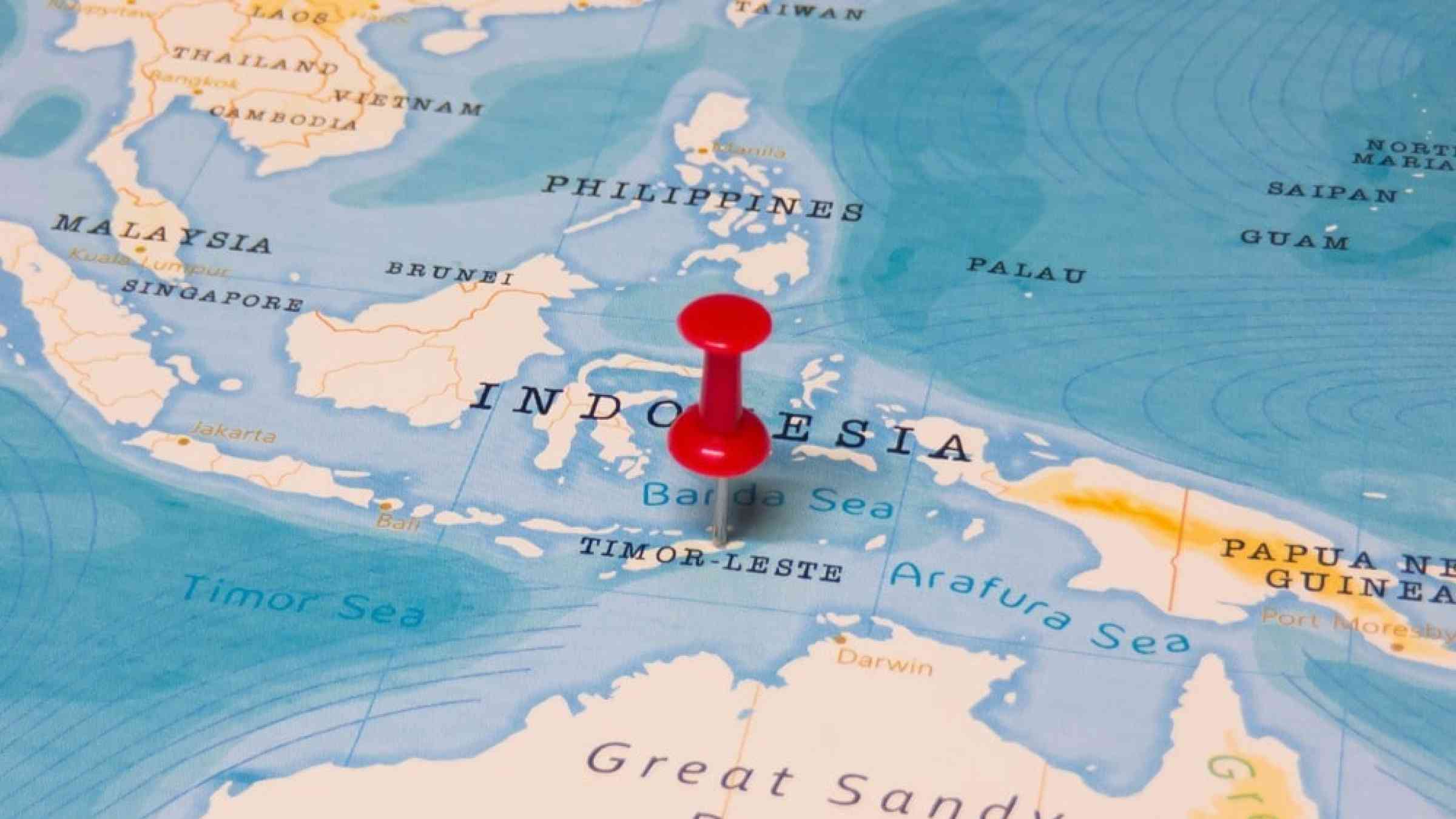Enhancing climate resilience and water security for communities in Timor Leste

Water is essential for life, but it is a scarce resource in many Pacific countries.
In Timor Leste, people are heavily reliant on water for consumption and agricultural activities in urban and rural areas, which means water availability is critical to their health and livelihoods.
The European Union Intra-ACP GCCA Plus Pacific Adaptation to Climate Change and Resilience Building (PACRES) Project has supported the Pacific region through scaling up pilot adaptation projects to enhance climate resilience and water security for vulnerable communities.
In January this year, the Secretariat of the Pacific Regional Environment Programme (SPREP) PACRES team partnered with the National Directorate of Climate Change (NDCC) office in Timor Leste to distribute rainwater harvesting systems and water tanks in Duhoho Haupu in Letefoho, Ermera District and Larisula, Baguia, Baucau District through the project’s water security component.
“Our community has faced challenges in accessing safe drinking water for many years now and we are grateful to the PACRES Project for enabling funds to provide rainwater harvesting systems and water tanks for families in Duhoho,” said Mr Benjamin Soares, Elder and community representative for Duhoho, Haupu as he expressed his gratitude to the PACRES project.
Timor Leste has a population of 1.3 million which is expected to triple by 2050. This will place an increased demand on water supplies and resources. Coupled with the impacts of climate change, access to freshwater sources will become increasingly challenging.
The NDCC identified vulnerable communities and areas most prone to difficulties in accessing safe drinking water for prioritisation for the water harvesting systems as a challenge to be addressed by the PACRES Project.
Climate change driven events like extreme rainfall events cause flooding and washes soil and pollutants into groundwater sources. As a result of sea level rise, water sources close to coastal areas are vulnerable to saltwater intrusion, which for Timor Leste has been observed at 9mm per year since 1993.
The mounting challenges in accessing clean drinking water present an urgency in having secure water systems for communities. Through the PACRES project, these water tanks distributed will service 110 households, providing resources for the capture and safe storage of rainwater.
“Having systems in place to help communities harvest and store water, enhances climate resilience and water security. Communities are better able to respond to the pressures of climate change and population increases by having consistent access to safe drinking water for health and livelihoods,” said Mr Semi Qamese, the PACRES Project Manager at SPREP.
“The PACRES Project is grateful for the opportunity to work with the NDCC to make this possible for communities in Timor Leste.”
The PACRES project has similarly distributed water tanks to vulnerable communities in Samoa, this year, under its water security component. The activities are part of the project close out period and are handed over to communities to ensure sustainability of project initiatives.